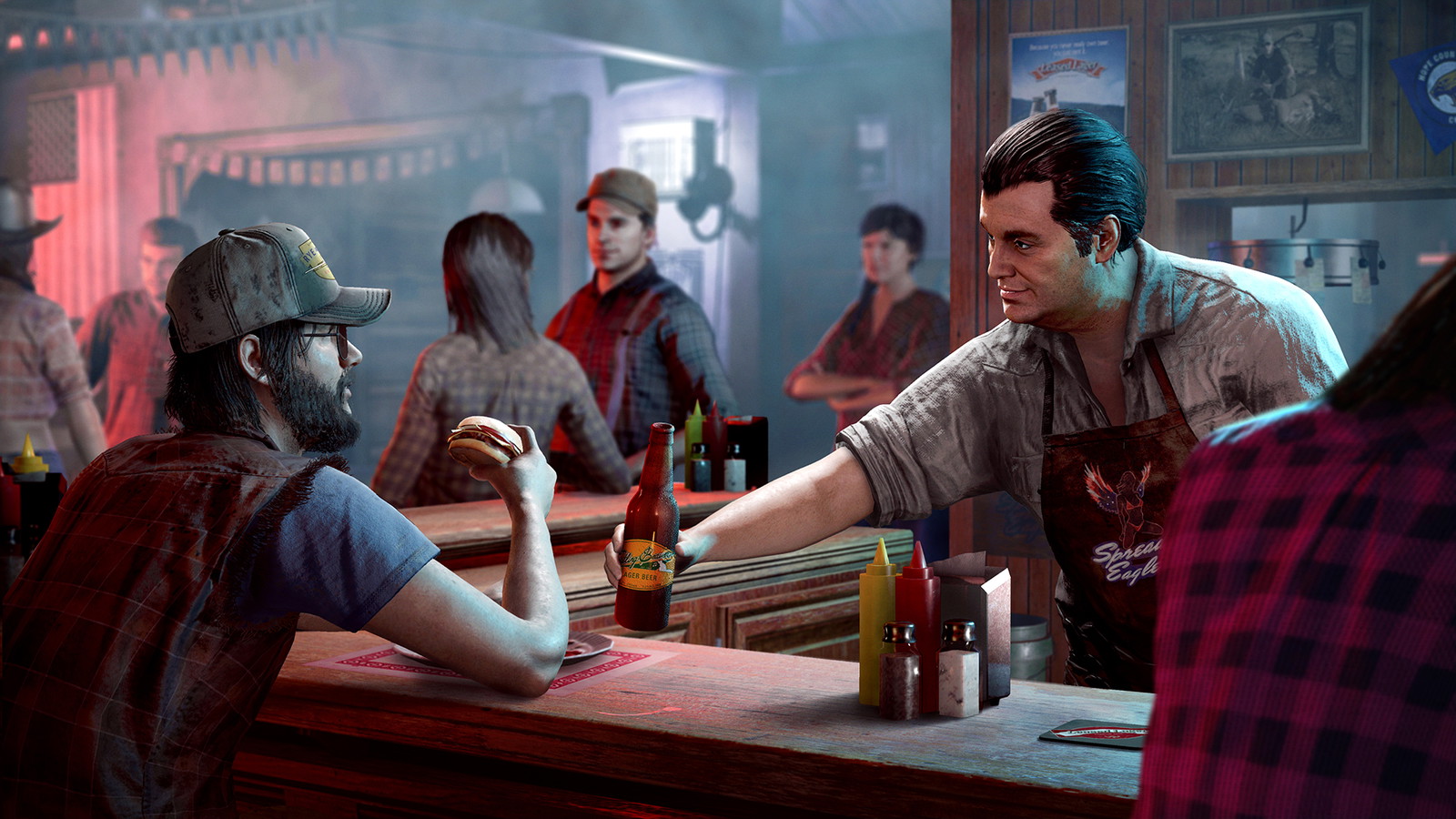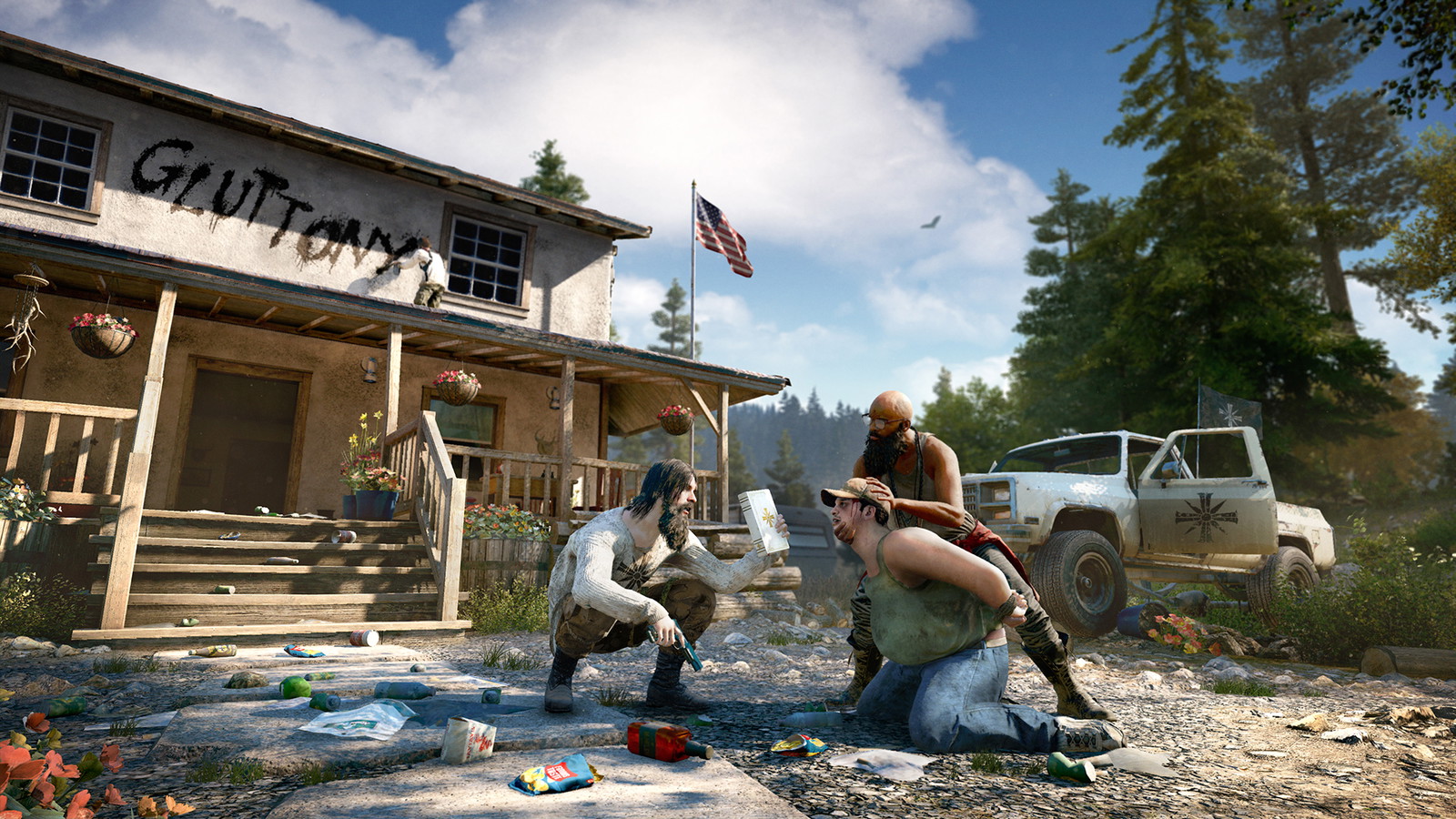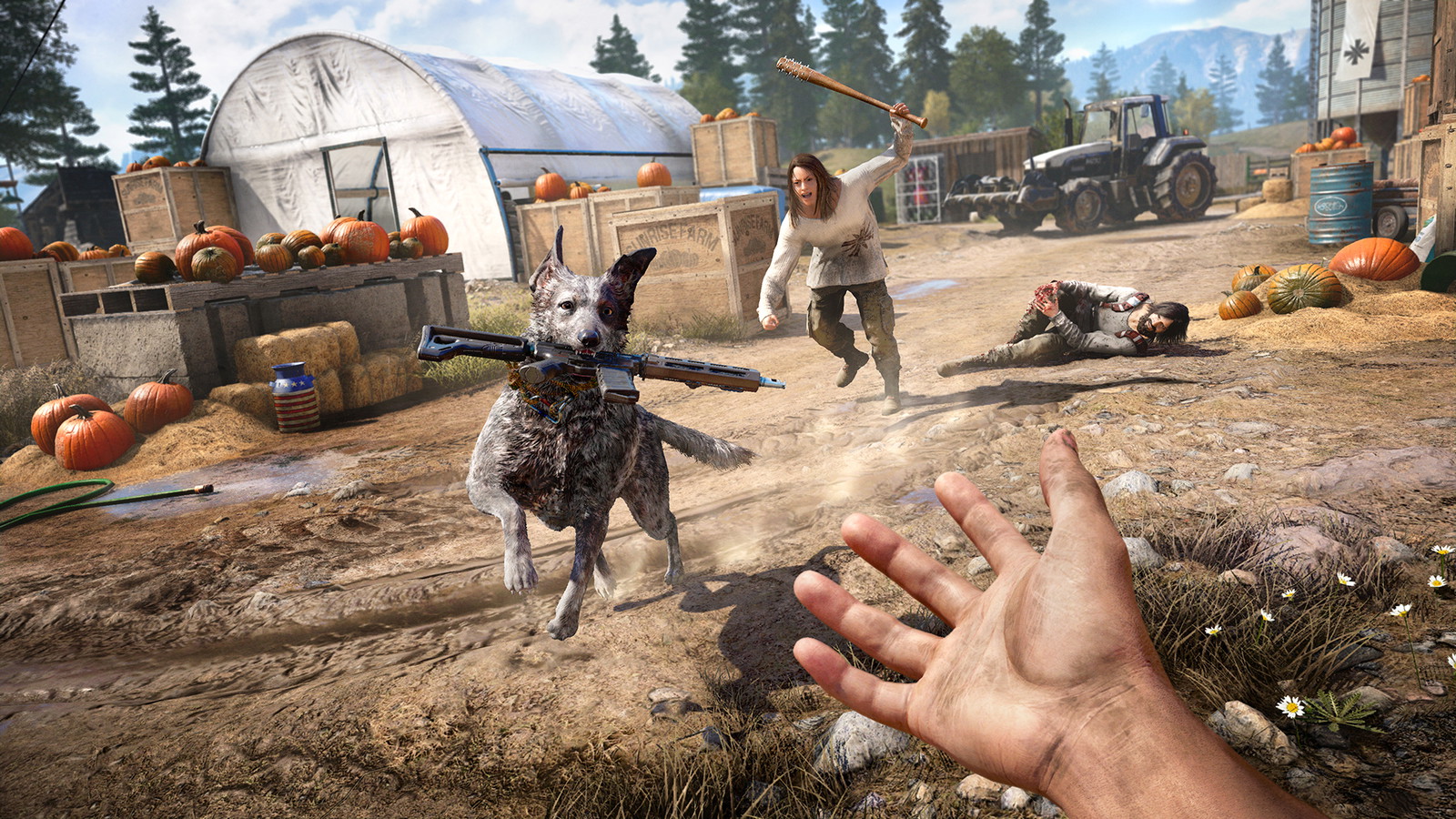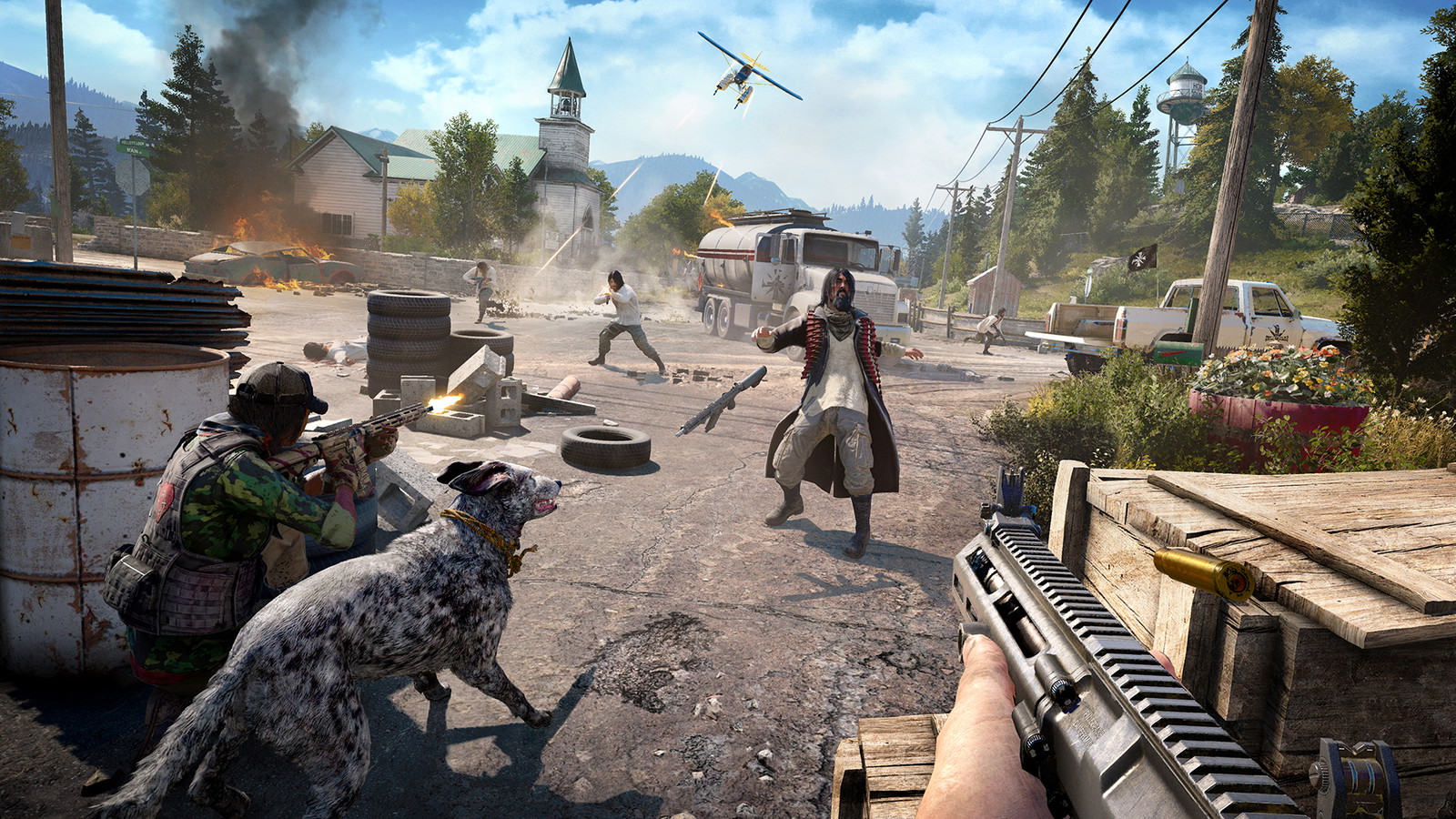Ubisoft’s Rumored Plan for Far Cry 7 and Its Impact on Fans
The Far Cry franchise, Ubisoft’s flagship open-world first-person shooter series, has been a cornerstone of gaming since its debut in 2004. Known for its sprawling worlds, chaotic combat, and memorable villains like Vaas Montenegro and Pagan Min, the series has built a loyal fanbase over nearly two decades, selling over 60 million units across its mainline entries and spinoffs. However, recent rumors about Far Cry 7, codenamed Project Blackbird, have sent shockwaves through the community. Reports suggest Ubisoft is planning a dramatic departure from the franchise’s core formula, introducing a 24-hour real-time (72-hour in-game) timer and shifting away from the traditional open-world exploration that defines Far Cry. With the game delayed to late 2026 or even 2027–2028, fans fear these changes could alienate longtime players and erode the series’ identity. What’s driving this bold pivot, and why are fans so worried? Let’s explore the rumors, the backlash, and what Far Cry 7 could mean for Ubisoft’s future.
The Legacy of Far Cry
Far Cry has evolved significantly since its tropical island origins. Far Cry 3 (2012) set the gold standard with its gripping story, open-world freedom, and iconic villain, Vaas, earning critical acclaim and selling over 10 million copies. Subsequent entries like Far Cry 4 (2014) and Far Cry 5 (2018) refined the formula, offering diverse settings—Kyrat’s Himalayas, Montana’s cult-ridden countryside—and gameplay staples like outpost liberation, hunting, and exploration. Far Cry 5 became Ubisoft’s best-selling game last generation, per a 2022 ComicBook.com report, despite mixed reviews for its narrative. However, Far Cry 6 (2021) faced criticism for repetitive gameplay and an overstuffed open world, with fans and critics, like GameRant, noting a “creative rut” in the series’ formula.
Ubisoft’s response has been to rethink Far Cry’s direction. Far Cry 7, developed by Ubisoft Montreal using the Snowdrop engine (replacing Dunia), is rumored to introduce a non-linear story centered on rescuing the protagonist’s kidnapped family from a cult called the Sons of Truth. The most controversial change is a time limit: players reportedly have 24 hours in real time (72 hours in-game) to complete the mission, a mechanic that could fundamentally alter the franchise’s open-world ethos. Additional features, like a new interrogation mechanic and overhauled movement (tactical sprinting, sliding, vaulting), aim to modernize the experience, but fans fear these changes prioritize innovation over tradition, potentially ruining what made Far Cry special.

⤢

⤢

⤢

⤢

⤢





The Rumored Plan: A Time-Limited Far Cry
The time limit, first reported by Insider Gaming’s Tom Henderson in September 2023, is the heart of the controversy. Unlike previous Far Cry games, where players could explore at their leisure, Far Cry 7’s campaign allegedly imposes a 24-hour real-world clock (equating to 72 in-game hours) to rescue family members. This mechanic, inspired by games like The Legend of Zelda: Majora’s Mask or Dead Rising, aims to heighten narrative urgency and replayability, as players may only have time for certain missions or upgrades in a single playthrough. The story, set on a fictional island with multiple biomes, involves interrogating enemies for clues, with outcomes varying—some give truthful information, others lie or escape, adding unpredictability.
Other rumored changes include a revamped stealth system, deeper weapon customization, and advanced AI that reacts to player choices, per a 9meters report. The game may also explore a near-future setting with slight sci-fi elements, a departure from the contemporary locales of Far Cry 5 and 6. While these innovations could distinguish Far Cry 7 from its predecessors, the time limit has sparked fierce debate. A Reddit post by user ThulrVO, shared on GAMINGbible, declared, “I won’t be buying this one… I’m into these games for the story and the freedom of exploration,” echoing sentiments across X and forums. Fans argue that Far Cry’s appeal lies in its sandbox freedom—hunting, liberating outposts, and uncovering secrets at one’s own pace—not a race against the clock.
Why Fans Fear It Will “Ruin” the Franchise
The backlash stems from Far Cry’s core identity: an open-world playground where players dictate the pace. The series’ formula, while criticized for repetition, is beloved for its accessibility and chaos, letting players tackle objectives creatively, whether stealthily or with a flamethrower. The time limit threatens this freedom, potentially forcing players to prioritize main missions over side quests, collectibles, or exploration. A FandomWire article warned that the mechanic “could easily make the game a frustrating experience,” especially if Ubisoft’s signature “bloat”—hundreds of icons and side activities—clashes with the timer’s urgency. One X user, @LegacyKillaHD, lamented, “I get enough deadlines at work, I don’t need more when I’m trying to have fun.”
The cancellation of Project Maverick, a multiplayer extraction shooter set in Alaska, adds fuel to the fire. Initially a Far Cry 7 mode, Maverick was spun off into a separate project but canceled in 2025, per ScreenRant, to focus resources on the mainline game. While this reassures some fans that Ubisoft is prioritizing a single-player experience, others worry the company’s pivot toward “bold” changes—like the timer—reflects a misunderstanding of what fans want. Far Cry 6’s rogue-like DLC and Far Cry 5’s lackluster expansions already tested fan patience, and posts on X, like @MrReaganUSA’s, express broader distrust in Ubisoft’s direction, citing financial struggles and controversial design choices.
The time limit’s implementation is another concern. If players fail to save their family within 24 hours, a simple “Game Over” screen could feel punishing, especially after investing significant time. GameRant suggested that Ubisoft could mitigate this with a meaningful bad ending, like shifting the campaign to a revenge arc against the cult, but fans remain skeptical. A Reddit user commented, “The 72-hour timer sounds interesting, but I don’t know if Ubisoft has the chops to pull it off mechanically,” reflecting doubts about Ubisoft’s execution after Far Cry 6’s mixed reception and recent flops like Skull and Bones.
Ubisoft’s Broader Context: Delays and Restructuring
Far Cry 7’s rumored changes come amid Ubisoft’s turbulent period. The company’s May 2025 earnings report revealed a $178 million net loss and 17.5% revenue drop, prompting delays for major titles, including Far Cry 7, Assassin’s Creed Hexe, and Ghost Recon, to 2026–2028. Assassin’s Creed Shadows’ success, with 3 million players and record-breaking PSN performance, set a blueprint for quality-first development, but Far Cry 7’s delay—potentially to March 2028, per 9meters—suggests significant development challenges. The shift to the Snowdrop engine, used in The Division and Star Wars Outlaws, adds complexity, as does Ubisoft’s restructuring, including a Tencent-backed subsidiary for Far Cry, Assassin’s Creed, and Rainbow Six, valued at €4 billion.
Tencent’s $1.25 billion investment, announced in March 2025, has raised fears of live-service or microtransaction-heavy elements, as noted in a FandomWire report. While Ubisoft insists the subsidiary will preserve single-player narratives, fans on X, like @Pirat_Nation, worry about “Tencent’s typical touch” altering Far Cry’s DNA. Layoffs (3,000 employees since 2024) and the shutdown of XDefiant further cloud Ubisoft’s future, with NotebookCheck.net warning that a light 2025–26 release slate (Anno 117: Pax Romana, Prince of Persia: The Sands of Time remake) could strain finances despite Shadows’ success.
Can Ubisoft Balance Innovation and Tradition?
Despite the backlash, some fans and analysts see potential in Far Cry 7’s changes. GameRant argued that the time limit could “revitalize the series” after formulaic sequels, citing Ubisoft’s willingness to experiment with Assassin’s Creed’s RPG shift or Prince of Persia: The Lost Crown’s side-scrolling format. The timer could enhance narrative stakes, making the cult’s threat feel immediate, and encourage replayability by limiting choices per run. A NeoGAF post praised the concept, noting, “Ubisoft mixing things up is good to see,” while InsiderGamingIG called it “innovative.” Suggested compromises, like tying the timer to higher difficulty modes or a separate mode, could appease traditionalists, as proposed in a GameRant article.
Far Cry 4, lauded by FandomWire for its political depth and balanced world, is a reminder of the franchise’s peak. Its blend of chaotic combat, a compelling villain (Pagan Min), and manageable exploration contrasts with Far Cry 6’s bloat, suggesting Ubisoft could refine Far Cry 7 by focusing on depth over scale. Rumors of a comprehensive weapon customization system, dynamic AI, and a near-future setting with sci-fi elements hint at ambition, but execution is critical. Far Cry 3 and 4 succeeded by prioritizing immersive stories and player agency, qualities fans fear the timer could undermine.
Community Sentiment: A Divided Fanbase
The Far Cry community is split. On X, @GAMERNEWSonX highlighted the delay and formula shift, sparking debates about Ubisoft’s priorities. Reddit’s r/farcry, with 270 votes on a 2023 thread, showed mixed reactions: some fans, like u/Tinths, are “skeptical but open” to the timer, while others, like u/NarrowButterfly8482, vowed to skip the game if it restricts exploration. A GAMINGbible report noted fans’ frustration, with one Redditor stating, “A timer would ruin the entire experience of what Far Cry means to me.” Conversely, ComicBook.com quoted a fan intrigued by the timer’s “interesting” potential, though skeptical of Ubisoft’s ability to deliver.
The cancellation of Project Maverick, a multiplayer-focused spinoff, reassured some single-player fans, but broader distrust persists. Far Cry 6’s mixed reception and Ubisoft’s recent failures—Star Wars Outlaws’ underwhelming sales, Skull and Bones’ flop—fuel skepticism. A Meristation report noted the timer’s similarity to Majora’s Mask, suggesting it could work if balanced, but fans remain wary, with one X user, @SynthPotato, lamenting, “No timers. I want stronghold takeovers, towers, and rewarding exploration.”
What’s at Stake for Far Cry 7
Far Cry 7 is at a crossroads. Ubisoft’s push for quality, inspired by Assassin’s Creed Shadows’ polish, could yield a bold, polished title, but the time limit risks alienating the core fanbase. Far Cry thrives on freedom, and a restrictive mechanic could clash with its sandbox legacy, as warned in IMDb’s coverage of the “ticking clock” controversy. Ubisoft’s financial pressures and Tencent’s influence add uncertainty, with fans fearing a shift toward live-service elements despite assurances of a narrative focus.
To succeed, Far Cry 7 must balance innovation with tradition. A toggleable timer, robust bad ending, or smaller, denser world could mitigate concerns, while a memorable villain—rumors of Cillian Murphy were debunked, per FandomWire—and refined combat could recapture Far Cry 4’s magic. With a release potentially years away, Ubisoft has time to refine its vision, but fan trust hangs in the balance.
Conclusion
Ubisoft’s rumored plan for Far Cry 7—a time-limited, non-linear story with overhauled mechanics—promises to shake up a franchise criticized for stagnation. Yet, the 24-hour timer threatens the open-world freedom that defines Far Cry, sparking fears it could “ruin” the experience for longtime fans. Delayed to 2026 or beyond, amid Ubisoft’s financial woes and restructuring, Far Cry 7 faces immense pressure to innovate without losing its soul. While some embrace the bold direction, others yearn for the chaotic, exploratory spirit of Far Cry 3 and 4. As Ubisoft navigates this high-stakes pivot, Far Cry 7 could redefine the series or alienate its loyal base. Stay tuned for updates, as the fate of this iconic franchise hangs in the balance.





